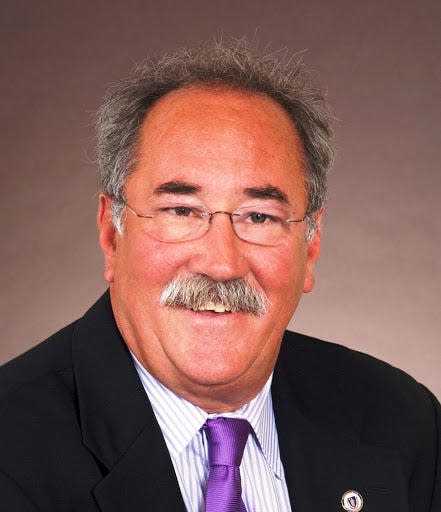Is this the year physician-assisted suicide becomes legal in Massachusetts?

It has come up in the past: Should Massachusetts allow terminally ill residents access to medicines that would ease suffering and end their life?
In 2012, voters statewide pondered the issue posed as a ballot question in the November elections, and defeated the measure by 67,891 votes.
Now two of the state’s veteran legislators: Sen. Jo Comerford, D-Northampton, and Rep. James O’Day, D-West Boylston, are asking fellow lawmakers the same question.
Their bills propose that residents over 18 who have been diagnosed with a terminal illness and have six months or less to live be allowed a prescription for medications that will terminate their lives.
The specific language requires an “informed decision” by a mentally capable individual to request and obtain a prescription for medication that the individual may self-administer to bring about a peaceful death, after being fully informed by the attending physician and consulting physician of available alternative care as well as the risks of taking the medication.
Key language; protective measures
“I have some history with my family,” O’Day said, remembering the time his father was ill with cancer and the weeks leading up to his death. “It was not pleasant.”
O’Day said his father had made it clear that the state representative was to “put him out of his misery if he was languishing in bed. He asked for the little black pill, or for me to put a pillow over his head. I told him, ‘Dad, I love you to death, but I can’t do that.’ ”
The experience made O’Day aware of the struggles some families deal with when their loved ones are facing a terminal diagnosis.
“It’s unacceptable,” O’Day said.
His Senate counterpart said she is putting forth the legislation at the request of her constituents.
“I really hope Massachusetts will address the issue of end-of-life care,” Comerford said. “It’s an exceedingly important issue.”
Facing mortality on own terms
Since the measure was first voted down by residents, legislators have responded to criticisms and made some changes to the proposal, adding safeguards to protect against abuse. Mental health experts must weigh in, and patients must present a medical diagnosis from a primary care physician as well as a second doctor. Requests must be made both orally and in written form, and patients have the right to change their minds at any time.
“People must be allowed to face their own mortality on their own terms and have the ability to end their own life to avoid suffering,” Comerford said.
Polling indicates that nearly 80% of Massachusetts residents favor the measure, O’Day said. And many legislative colleagues have indicated their support as well, reporting the bill out favorably in prior sessions.
The two lead legislators have said that the new administration appears to favor enactment as well.
“Gov. (Maura) Healey has indicated her support in the past,” Comerford said.
Opposition to the measure includes the Catholic Church as well as groups dedicated to advancing the rights of disabled Americans.
“Every time this measure comes up in the Legislature, the Catholic Church is strongly opposed to physician-assisted suicide,” said James Driscoll, executive director for the Massachusetts Catholic Conference, entitled to speak for all four dioceses: Boston, Fall River, Springfield and Worcester.
The Catholic Church, he said, upholds the dignity of human life, deems it a gift from God that should be nurtured and cared for until a natural death. And, Driscoll said, there are flaws in the legislation that, despite tweaks, cannot be rectified.
“The diagnosis could be wrong,” Driscoll said, explaining that he is aware of instances where a patient who was told they had six months or less to live enjoyed many more months of time. “There are many people who testify, on both sides, at the hearings.”
Undue influence from others
In addition, Driscoll doubts the legislation can safeguard vulnerable people, diagnosed with a terminal illness who may be depressed and discouraged, from undue influence from family members or care providers. Patients could be urged to take the medication and end their life against their will to benefit those caretakers, he said.
Driscoll said Massachusetts legislators should focus more on ensuring that all residents, including those who are economically distressed, have access to palliative and hospice care.
“The best hospitals in the world are at our back door. If we’re the medical capital of the world, hospice care should get much better,” Driscoll said.
While the church argues from a moral standpoint of preserving life, groups promoting the rights of the disabled are concerned with the possibility of transitioning from physician-assisted suicide in terminal cases to euthanasia; mercy killings without consent of people with mental illnesses, physical handicaps, the elderly, people with dementia, the homeless or citizens who are deemed “useless.”
“There is no evidence to support the feeling,” said O’Day, who has a son with cerebral palsy. He pointed out that a similar measure has been law in Oregon for more than two decades and said it has not claimed unwilling lives.
Nine other states and Washington, D.C., have enacted similar physician-assisted suicide laws, and it is legal in eight other countries, including Canada.
This article originally appeared on Telegram & Gazette: Physician assisted suicide in Mass.: 2 bills would legalize it
